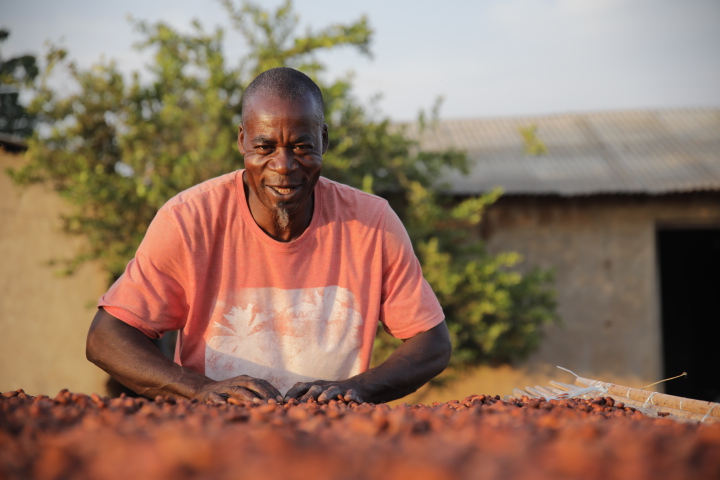Background
- Mars and Fairtrade have worked together for over 10 years, switching products to Fairtrade and to deliver against Mars’ sustainability strategy Cocoa for Generations.
- Maltesers was the first brand within the Mars family to switch to Fairtrade in 2011, later followed by Mars bar; collaborations which have led to millions of dollars of Fairtrade Premium reaching cocoa farmers.
- Beyond sourcing Fairtrade cocoa, Mars, Fairtrade, and ECOOKIM (a collection of cocoa co-operatives from Côte d’Ivoire) are working together to enable all farmers who they source from on Fairtrade terms to improve their livelihoods.
Read about Mars’ sustainability strategy Cocoa for Generations
LEAP overview
To drive towards a living income for all cocoa farmers, Fairtrade, ECOOKIM and Mars are launching the Livelihoods Ecosystem Advancement Program (LEAP), an initiative targeted to reach 5,000 farmers in the coming five years.
Launching in 2022, this innovative programme is part funded by Fairtrade Finland’s development cooperation programme (DONUTS), which receives funding from Ministry of Foreign Affairs Finland (MFA). LEAP will focus on three priority areas:
- Strengthening co-operatives so they can support farmers with a range of services to help them to grow more cocoa and earn higher incomes
- Diversifying farmer incomes so both women and men farmers can make money from sources other than cocoa.
- Nurturing expanding access to financial services like loans and mobile banking, so farmers can invest in their farms and their futures.
Farmers at the centre of our approach
LEAP starts from the position that ‘no two farmers are the same’ and seeks to deliver tailored approaches which help cocoa farmers work towards a living income, regardless of their starting position.
This program was designed in consultation with farmers who provide cocoa to ECOOKIM and they will continue to be consulted to help guide the program’s implementation, governance and learnings.
Our approach will seek to support changes within the ‘market-ecosystem’ within which farmers operate; meaning we’ll be supporting investments which open up long-term services and benefits in line with farmer needs, in place of one-off trainings.
We’ll be sharing the lessons we learn, raising visibility of both the challenges confronted and evidence of success that can be scaled to other farming households over time.
